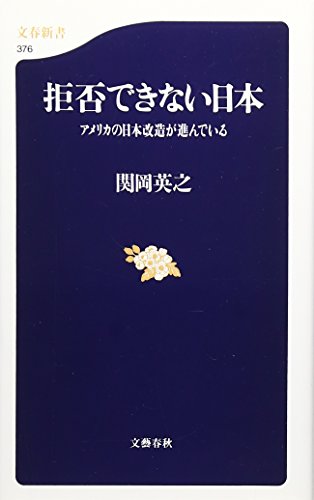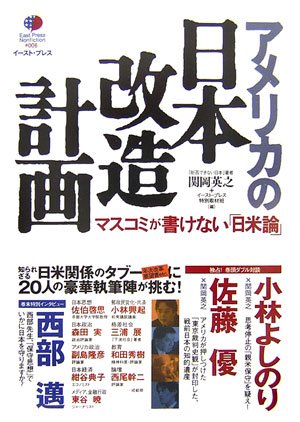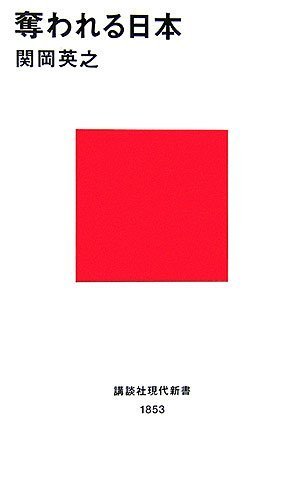1 0 0 0 OA 認知行動療法の実践家に求められる知識と技能:公認心理師養成にむけて
- 著者
- 小関 俊祐 伊藤 大輔 小野 はるか 小川 祐子
- 出版者
- 公益社団法人 日本心理学会
- 雑誌
- 日本心理学会大会発表論文集 日本心理学会第82回大会 (ISSN:24337609)
- 巻号頁・発行日
- pp.SS-035, 2018-09-25 (Released:2019-07-19)
1 0 0 0 人類及人種
- 著者
- ラング、カーベル原著 関澄蔵譯述
- 出版者
- 大橋新太郎
- 巻号頁・発行日
- 1896
1 0 0 0 OA 動揺病発症過程における血中および尿中ホルモン動態
- 著者
- 小林 毅 石井 正則 金田 健作 八代 利伸 森山 寛 須藤 正道 関口 千春 五十嵐 眞
- 出版者
- Japan Society for Equilibrium Research
- 雑誌
- Equilibrium Research (ISSN:03855716)
- 巻号頁・発行日
- vol.53, no.4, pp.507-515, 1994 (Released:2009-10-13)
- 参考文献数
- 10
In an effort to determine the mechanism causing motion sickness, various studies have been conducted on the autonomic and central nervous systems. Recently, it was reported that the level of antidiuretic hormone (ADH) rises when motion sickness appears, and the possible involvement of hormones in the manifestation of motion sickness has become a focus of attention.We induced motion sickness by Colioris stimulation in healthy adult volunteers, and examined hypothalamus-pituitary-adrenal hormones and neuropeptides before and after stimulation and during the recovery process.In the high susceptibility group blood levels of ADH, ACTH, prolactin, cortisol, β-endorphin and MET-enkephalin and urinary levels of ADH immediately after stimulation were significantly higher than those in the low susceptibility group. These levels returned to normal after 30 minutes of rest. In the high susceptibility group the motion sickness score immediately after stimulation showed a significant correlations with the blood levels of ADH, ACTH and β-endorphin.These results indicate that ADH, ACTH, β-endorphin and MET-enkephalin are involved in the nausea and vomiting of motion sickness. Moreover, it seems that the mechanism and effects of these hormones may differ from each other. Since the urinary level of ADH is very closely correlated with its blood level, the use of urinary ADH testing is advocated as a simple method with no discomfort.
1 0 0 0 OA 口上覚
1 0 0 0 中国共産党政権下における宗教--宗教政策を中心として
- 著者
- 関口 泰由
- 出版者
- 日本大学大学院総合社会情報研究科
- 雑誌
- 日本大学大学院総合社会情報研究科紀要 (ISSN:13461656)
- 巻号頁・発行日
- no.5, pp.68-78, 2005-02
1 0 0 0 OA PLI 2002報告
- 著者
- 住井 英二朗 関口 龍郎 細谷 晴夫
- 出版者
- 日本ソフトウェア科学会
- 雑誌
- コンピュータ ソフトウェア (ISSN:02896540)
- 巻号頁・発行日
- vol.20, no.2, pp.195-200, 2003-03-25 (Released:2010-01-11)
- 著者
- 近藤 健 藤井 洋有 関根 圭介 野口 直人 李 範爽
- 出版者
- 日本作業療法士協会 ; 1982-
- 雑誌
- 作業療法 = Japanese occupational therapy research (ISSN:02894920)
- 巻号頁・発行日
- vol.37, no.1, pp.67-73, 2018-02
1 0 0 0 大分平野における想定南海地震による長周期地震動のシミュレーション
- 著者
- 岩城 麻子 岩田 知孝 関口 春子 浅野 公之 吉見 雅行 鈴木 晴彦
- 出版者
- 公益社団法人 日本地震学会
- 雑誌
- 地震 第2輯 (ISSN:00371114)
- 巻号頁・発行日
- vol.61, no.4, pp.161-173, 2009
We studied the source model and the underground velocity structure model for quantitative estimation of long-period (3-20s) ground motion in the Oita Plain due to a hypothetical Nankai earthquake. First, the deep subsurface velocity structure of the Oita sedimentary basin was validated by a long-period ground motion simulation of the 2000 western Tottori earthquake records. The simulated waveforms reproduced the amplification and duration of the observed waveforms and peak periods of pseudo response spectra at strong motion stations both in and out the Oita Plain reasonably well. Then we combined the subsurface velocity structure with a crustal velocity structure and performed long-period ground motion simulations of a Nankai earthquake by a three-dimensional finite-difference method. The source model has a total area of 34,000 km<SUP>2</SUP> with total seismic moment of 6.24×10<SUP>21</SUP> Nm (<I>M</I><SUB>W</SUB> 8.5). In addition to the scenario in which rupture propagates from the east (east-hypo model) that have been generally accepted, we investigated another from the west (west-hypo model). For the east-hypo model, the maximum amplitudes of the simulated horizontal ground motion in the Oita plain was three to four times as large as that on a rock site beside the plain. Especially in the bay area, the maximum ground motion reached 100cm/s and the pseudo velocity response spectra at period 6-8s were more than 400cm/s. On the other hand, the ground motion simulated by the west-hypo model was roughly one fifth smaller than that by the east-hypo model. It is also pointed out that in the east-hypo model simulation, the seismic waves generated by the two asperities near to the Oita plain are enlarged due to the directivity effect and amplified and prolonged by the sedimentary basin structure.
1 0 0 0 OA 過敏性腸症候群に対する認知行動療法の実際
- 著者
- 船場 美佐子 河西 ひとみ 藤井 靖 富田 吉敏 関口 敦 安藤 哲也
- 出版者
- 一般社団法人 日本心身医学会
- 雑誌
- 心身医学 (ISSN:03850307)
- 巻号頁・発行日
- vol.61, no.4, pp.330-334, 2021 (Released:2021-05-01)
- 参考文献数
- 24
難治性の過敏性腸症候群 (IBS) に対する心理療法の1つとして, コクラン・レビューでは認知行動療法 (CBT) の有効性が示されている. 本稿では, 近年日本で臨床研究が実施されている, IBSに対する 「内部感覚曝露を用いた認知行動療法 (CBT-IE)」 とその構成要素, CBT-IEの臨床研究の動向を紹介する.
1 0 0 0 OA 歩行時間,睡眠時間,生きがいと高齢者の生命予後の関連に関するコホート研究
- 著者
- 関 奈緒
- 出版者
- The Japanese Society for Hygiene
- 雑誌
- 日本衛生学雑誌 (ISSN:00215082)
- 巻号頁・発行日
- vol.56, no.2, pp.535-540, 2001-07-15 (Released:2009-02-17)
- 参考文献数
- 31
- 被引用文献数
- 24 29
The purpose of this study was to determine lifestyle factors in the elderly that affected longevity, using a population-based prospective study. The participants were 440 men and 625 women aged 60 to 74 living in a rural Japanese community. The baseline data such as age, sex, present illness, walking hours per day, sleeping hours per day, alcohol consumption, a history of smoking, and “ikigai” (meaningfulness of life) were collected in July 1990. During 90 months of follow-up from July 1990 to December 31 1997, there were 123 deaths. By Cox's multivariate hazard model adjusted age, sex, and medical histories, walking≥1 hour/day (HR=0.63, 95% CI 0.44-0.91) and an “ikigai” (HR=0.66, 95% CI 0.44-0.99) lowered the risk for all-cause mortality independently. In regard to hours of sleep, the cumulative survival curve showed that 7 hours/day was the border and sleeping≥7 hours/day lowered the risk (HR=0.49 95% CI 0.33-0.74). Based on the findings in this study, walking≥1 hour/day, sleeping≥7 hours/day, and “ikigai” are important factors for longevity in the elderly.
- 著者
- 関 秀寿 服部 真承 村田 和義 渋谷 雄
- 出版者
- ヒューマンインタフェース学会
- 雑誌
- ヒューマンインタフェース学会論文誌 (ISSN:13447262)
- 巻号頁・発行日
- vol.12, no.2, pp.113-121, 2010-05-25
- 参考文献数
- 15
<p>The mirror interface can be used for various environments and be expected as an intuitive input method for diverse users. Visual and auditory feedbacks are used for the traditional mirror interface. In this study, in addition to these feedbacks, a tactile feedback is adopted to improve the usability of mirror interface. Experiments were conducted to evaluate the influence of visual, auditory, or tactile feedback delay on the usability of mirror interface. As a result, tactile feedback did not affect the task completion time. However the delay of tactile feedback was easier to be noticed by the user than the delay of auditory feedback. Furthermore, it was found that the tactile feedback might give the user a certain feeling of selecting the desired target.</p>
1 0 0 0 拒否できない日本 : アメリカの日本改造が進んでいる
1 0 0 0 アメリカの日本改造計画 : マスコミが書けない「日米論」
- 著者
- 関岡英之 イースト・プレス特別取材班編
- 出版者
- イースト・プレス
- 巻号頁・発行日
- 2006
1 0 0 0 OA 十分の一税の確立とその展開
- 著者
- 関口武彦
- 出版者
- 山形大学
- 雑誌
- 山形大学紀要(社会科学)
- 巻号頁・発行日
- vol.37, no.2, 2007-02-15
- 著者
- 畑中 顯和 梶原 忠彦 関谷 次郎
- 出版者
- 天然有機化合物討論会実行委員会
- 雑誌
- 天然有機化合物討論会講演要旨集 22 (ISSN:24331856)
- 巻号頁・発行日
- pp.657-664, 1979-09-20 (Released:2017-08-18)
Endogenous linolenic acid in Thea chloroplasts is cleaved into cis-3-hexenal and 11-formyl-cis-9-undecenoic acid via a very labile intermediate by E_2 of an enzyme system E_2 (E_2 and E'_2+E"_2) bound to the lamellae membranes of chloroplasts under aerobic condition. On the other hand, in external addition of a large amount of linoleic acid to chloroplasts, E'_2 and E"_2 activities newly are induced in addition to E_2 activity, and E'_2 catalyzes the formation of 13-Hydroperoxide and then it was cleaved to n-hexanal by E"_2. The substrate specificity of the enzyme system E_2 in Thea chloroplasts was clarified with an entire series of synthesized positional isomers, in which the position of cis-1,cis-4-pentadiene system varies from C-3 to C-13 in C_<18> fatty acid and geometrical isomers of linoleic acid. The structural requirement for the substrate of E_2 is the presence of cis-1,cis-4-pentadiene system between ω-6 and ω-10. The enantiomeric composition of the 13-Hydroperoxide produced by E'_2 was determined by GLC and NMR analysis: After a large amount of linoleic acid was incubated with tea chloroplasts, a mixture of hydroperoxides (13-hydroperoxy-cis-9,trans-11-/9-hydroperoxy-trans-10,cis-12-octadecadienoic acid=84/16: crude-I) was isolated. The major hydroperoxide of the crude-I was identified as 13-L-hydroperoxy-cis-9,trans-11-octadecadienoic acid (80) containing a small amount of its enantiomer(13-D=20). So, it was demonstrated that E'_2in Tea chloroplasts catalyzes the stereospecific oxygenation of linoleic acid to the 13-L-hydroperoxide.
1 0 0 0 OA 水溶液の電気的中性の原理はどこまで成立するか? ―ケルビン水滴誘導起電機を用いた考察―
- 著者
- 尾関 徹 瀧川 勝三 谷田 高輝
- 出版者
- 日本ポーラログラフ学会
- 雑誌
- Review of Polarography (ISSN:00346691)
- 巻号頁・発行日
- vol.60, no.1, pp.49-58, 2014-05-21 (Released:2014-05-28)
- 参考文献数
- 9
Only letting water drop can generate electricity according to the idea of Load Kelvin, which has been known as Kelvin’s water droplet electric generator. Then what is the real carrier of electric charge in water droplets? We started this study from a curiosity on electrochemical understanding of aqueous solution. The study has led us the fact that this phenomenon is contradicting the well-known condition of analytical chemistry that an aqueous solution can be treated with the condition of electric neutrality anytime, although it is the problem of how much precisely we treat the condition of electric neutrality of aqueous solutions.
1 0 0 0 OA ガソリンエンジンのサイクルシミュレーションモデルを用いたコンロッド軸受の潤滑解析
- 著者
- 小笹 俊博 新関 雅俊
- 出版者
- 一般社団法人 日本機械学会
- 雑誌
- 日本機械学会論文集B編 (ISSN:18848346)
- 巻号頁・発行日
- vol.77, no.781, pp.1834-1843, 2011 (Released:2011-09-25)
- 参考文献数
- 10
- 被引用文献数
- 2 1
In the case of engine bearings, pressure in a cylinder is necessary for the analysis of lubrication. In this study, a cycle simulation of gasoline engines has been developed to predict the pressure in a cylinder under the wide range of engine operation. In the cycle simulation, intake and exhaust processes are included and combustion process is calculated with flame propagation based on burning velocity. The pressure in the cylinder is introduced into the bearing analysis to calculate the load on the bearing in addition to the inertia force. Orbital movement, minimum oil film thickness, and power loss in the bearing are estimated. This method may be useful on an engine design.




